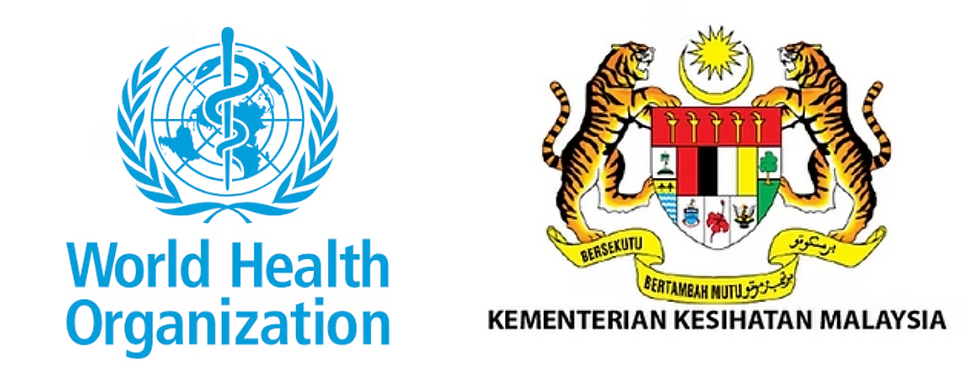Can Painkillers Cause Autism?
- MSCP
- Sep 26, 2025
- 4 min read

Over the past couple of weeks, there have been claims by prominent figures and news outlets that the consumption of Tylenol (paracetamol) causes Autism Spectrum Disorder (ASD). The Malaysian Society of Clinical Psychology (MSCP), in alignment with national and international health authorities, such as the American Psychological Association (APA) and the World Health Organization (WHO), wishes to address and correct the alarming piece of misinformation.
Recent social media trends and anecdotal reports have resurfaced this unsubstantiated theory, causing unnecessary anxiety among parents and caregivers. It is crucial to base public health guidance on robust scientific evidence, not on fear or correlation without causation.
The Origin of the Myth and the Scientific Reality
The myth stems from observational studies that noted a correlation. These types of studies can identify a potential link but are fundamentally unable to prove that one factor causes another. They cannot rule out other variables, such as mothers age, genetics, etc., a point critically explained by health experts in recent media reports.
As highlighted by the official statements from the APA and WHO, the scientific consensus is clear: There is no proven causal link between paracetamol and ASD. It was emphasized that the existing studies suggesting a link are fraught with confounding factors (factors not being accounted for that can affect the results of the study) and cannot be used to make definitive public health warnings.
Myth vs. Fact: Setting the Record Straight
Myths | Facts |
|---|---|
Prenatal or childhood use of paracetamol is a known cause of autism. | Extensive research, including large-scale reviews, has not established a causal relationship. The WHO and other major health bodies continue to recommend paracetamol as the preferred pain and fever reliever during pregnancy when medically needed. Untreated high fever in pregnancy poses a far greater documented risk to a foetus (WHO, 2022). |
The science is settled, and authorities are hiding the truth. | Science is an ongoing process, but the current evidence is not strong enough to change medical guidelines. Reputable health organizations base their recommendations on the totality of evidence, which currently does not support the claim. The recent news coverage serves to correct the public record, not to confirm a hidden danger. |
The increase in autism diagnoses is linked to paracetamol use. | The rise in ASD diagnoses is overwhelmingly attributed to broadened diagnostic criteria, greater awareness, and improved screening methods (CDC, 2023). Genetics is the most significant known risk factor, accounting for nearly 70-90%. |
The Real Risks: Misinformation and Untreated Illness

The most significant danger of this myth is twofold:
It causes unnecessary parental guilt and anxiety. Blaming a common and necessary medication can be deeply distressing for families.
It may lead to harmful health choices. Fear might cause pregnant individuals or parents to avoid treating a significant fever or pain, which can itself be dangerous for both the mother and the developing child.
What the Public Should Know and Do:
Follow Medical Advice

Paracetamol remains a safe and essential medication when used as directed by a healthcare provider. Do not hesitate to use it to manage fever or pain based on unproven claims.
Evaluate Sources Critically
Be wary of information from non-scientific sources, such as social media anecdotes or websites promoting alternative agendas. Rely on information from established health authorities like the Ministry of Health Malaysia (MOH), the WHO, and professional medical bodies.

Focus on Evidence-Based Factors

Using an Evidence-Based Practice (EBP) approach
The scientific community continues to research the complex causes of ASD, which are understood to be primarily genetic and influenced by a combination of factors. Efforts are better focused on supporting acceptance, understanding, and access to early intervention services.
Conclusion
The Malaysian Society of Clinical Psychology urges the public to seek information from credible medical sources and to consult with healthcare professionals regarding any health concerns. Spreading unverified claims can have real-world negative consequences. Our collective focus should be on supporting individuals with ASD and their families with accurate information and inclusive practices, not on promoting baseless fears.
Reference List
Ahlqvist VH, Sjöqvist H, Dalman C, et al. Acetaminophen Use During Pregnancy and Children’s Risk of Autism, ADHD, and Intellectual Disability. JAMA. 2024;331(14):1205–1214. doi:10.1001/jama.2024.3172
Ahlqvist, V. H., Sjöqvist, H., Dalman, C., Karlsson, H., Stephansson, O., Johansson, S., Magnusson, C., Gardner, R. M., & Lee, B. K. (2024). Acetaminophen Use During Pregnancy and Children's Risk of Autism, ADHD, and Intellectual Disability. JAMA, 331(14), 1205–1214. https://doi.org/10.1001/jama.2024.3172
Huang, Y., Arnold, S. R., Foley, K. R., & Trollor, J. N. (2020). Diagnosis of autism in adulthood: A scoping review. Autism : the international journal of research and practice, 24(6), 1311–1327. https://doi.org/10.1177/1362361320903128
Ledford, H. (2025). Will RFK Jr’s vaccine agenda make america contagious again? Nature. https://doi.org/10.1038/d41586-025-00709-9
Lyall, K., Croen, L., Daniels, J., Fallin, M. D., Ladd-Acosta, C., Lee, B. K., Park, B. Y., Snyder, N. W., Schendel, D., Volk, H., Windham, G. C., & Newschaffer, C. (2017). The Changing Epidemiology of Autism Spectrum Disorders. Annual review of public health, 38, 81–102. https://doi.org/10.1146/annurev-publhealth-031816-044318
Pearson, H. (2025). Autism is on the rise: What’s really behind the increase? Nature, 644(8078), 860–863. https://doi.org/10.1038/d41586-025-02636-1
Singer, A. B., Burstyn, I., Thygesen, M., Mortensen, P. B., Fallin, M. D., & Schendel, D. E. (2017). Parental exposures to occupational asthmagens and risk of autism spectrum disorder in a Danish population-based case-control study. Environmental health : a global access science source, 16(1), 31. https://doi.org/10.1186/s12940-017-0230-8
.png)



Comments